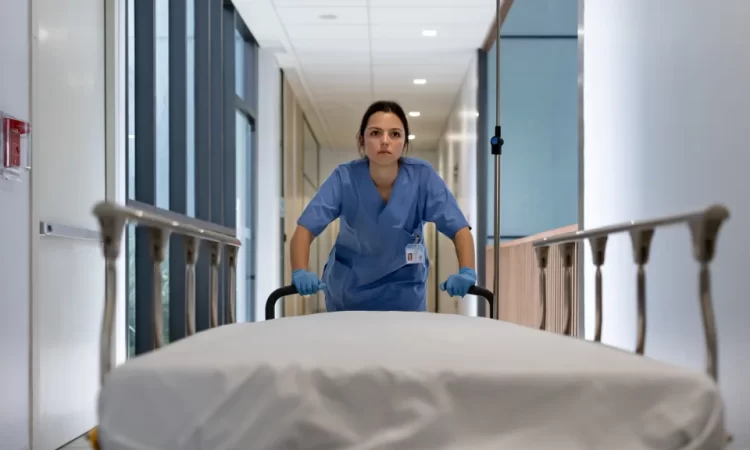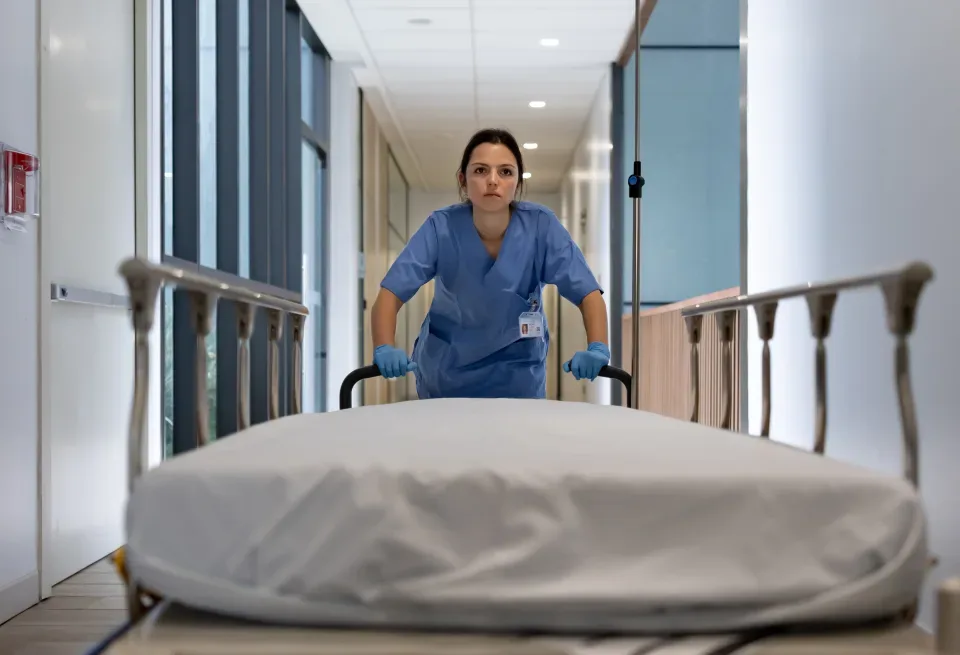

The NHS has more funding and stuff than before the COVID pandemic but is treating fewer patients, according to research by the Institute for Fiscal Studies (IFS).
The think tank said that the NHS has 8% more nurses, 9% more consultants and 15% more junior doctors than pre-pandemic but the number of beds available for non-COVID activity in the third quarter of 2022 was still lower than before the pandemic.
“The NHS is showing clear signs of strain heading into the winter, and is treating fewer patients than it was pre-pandemic across many types of care. The real risk, almost three years on from the start of the pandemic, is that the COVID hit to NHS performance is not time-limited,” Max Warner, research economist at the IFS and an author of the report, said.
Read more: Real wages shrank by nearly £80 a month this year, says TUC
“Going forward, we need to grapple with the possibility that the health service is just able to treat fewer patients with the same level of resources,” he added.
The report said that the additional £3.3bn of funding allocated to the NHS at the Autumn statement is only enough to offset just around half of the real-terms hit from higher inflation.
The rate of inflation hit 11.1% – a 41-year high – in October as it reflected the latest increases to energy bills.
The Autumn statement also came one week after NHS figures showed that the waiting list for treatment – commonly known as the ‘backlog’ – had risen to 7.1 million in September 2022, a total that has risen to 7.2 million in the month since.
In October, the NHS carried out 14% fewer emergency admissions, 14% fewer outpatient appointments and 11% fewer elective and maternity admissions than it did in the same month in 2019.
The figures also showed that in the first week of December, around 40% of those in hospital for more than 21 days were ready for discharge.
Read more: UK workers have lost £9,200 a year in wages since 2008
Nurses are set to go ahead with a strike this week as the union demands a pay rise of 5% above the RPI rate of inflation, which was 14.2% in October.
Ministers have repeatedly insisted they can’t afford to give inflation-busting pay rises and say they have accepted the independent pay review body’s recommendation of a £1,400 rise.
Six hundred military personnel from all three armed forces will start training to drive ambulances to cover for striking NHS workers across the UK. A further 150 are being readied to act as logistical support.
Watch: NHS staff shortages led to 30,000 cancelled operations last year, data reveals






